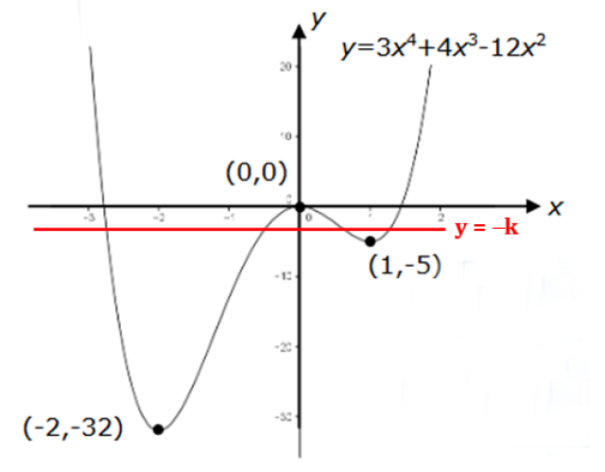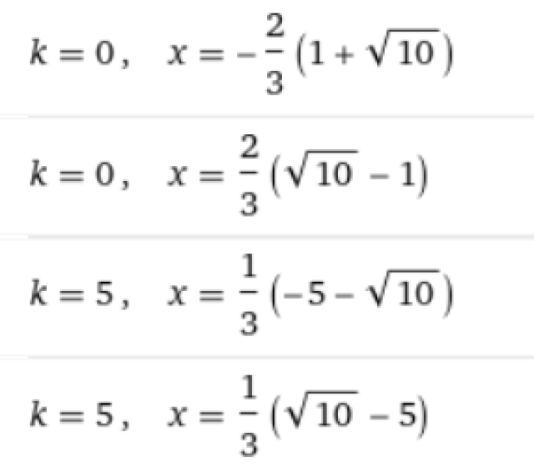✔ 最佳答案
1)
Let (m - n), m, (m + n) be the roots of the equation x³ + ax² + bx + c = 0
a = -[(m - n) + m + (m + n)]
a = -3m
Hence, m = -a/3
m is one of the roots of the equation x³ + ax² + bx + c = 0
Plug x = -a/3 into the equation x³ + ax² + bx + c = 0:
(-a/3)³ + a(-a/3)² + b(-a/3) + c = 0
(-a³/27) + (a³/9) - (ab/3) + c = 0
[(-a³/27) + (a³/9) - (ab/3) + c] * 27 = 0
-a³ + 3a³ - 9ab + 27c = 0
2a³ - 9ab + 27c = 0
Hence, 2a³ + 27c = 9ab
====
2.
This is a difficult question and cannot be solved by Factor Theorem.
First of all, the stationary points of f(x) = 3x⁴ + 4x³ - 12x² are found by using differentiation.
f(x) = 3x⁴ + 4x³ - 12x²
f'(x) = 12x³ + 12x² - 24x = 12x(x + 2)(x - 1)
f"(x) = 36x² + 24x - 24
When x = 0:
f(0) = 3(0)⁴ + 4(0)³ - 12(0)² = 0
f'(0) = 0
f"(0) = 36(0)² + 24(0) - 24 = -24 < 0
Hence, maximum at (0, 0)
When x = -2:
f(-2) = 3(-2)⁴ + 4(-2)³ - 12(-2)² = -32
f'(-2) = 0
f"(-2) = 36(-2)² + 24(-2) - 24 = 72 > 0
Hence, minimum at (-2, -32)
f(1) = 3(1)⁴ + 4(1)³ - 12(1)² = -5
f'(1) = 0
f"(1) = 36(1)² + 24(1) - 24 = 36 > 0
Hence, minimum at (1, -5)
Sketch the graph y = 3x⁴ + 4x³ - 12x² as shown in the figure below.
Finally, solve the equation 3x⁴ + 4x³ - 12x² + k = 0
Then, 3x⁴ + 4x³ - 12x² = -k
The roots are the points of intersection of y = 3x⁴ + 4x³ - 12x² and y = -k
There are four points of intersection (i.e. four real roots) when -5 < -k < 0
Hence, 0 < k < 5 or k ∊ (0, 5)
(When k = 0 or k = 5, there are only THREE points of intersection, i.e. THREE real roots.)




